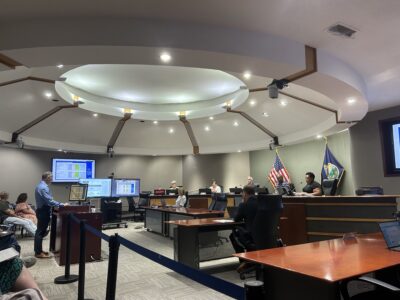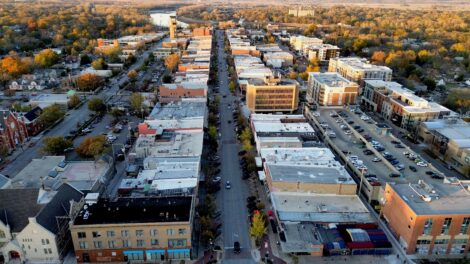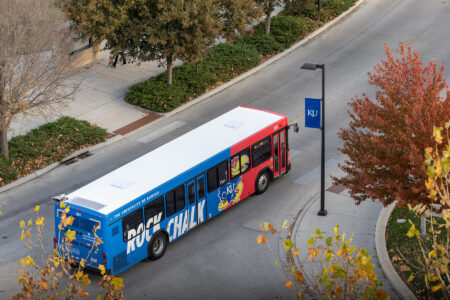Lawrence staff outlines financial tools that could generate new revenues during Parks & Rec Master Plan presentation

photo by: Bremen Keasey
Members of the Parks and Recreation Advisory Board heard a presentation from city staff and consultants about the department's Master Plan Monday night.
Fee options, a greater piece of the tax pie and a foundation to accept donations were just a few recommendations for creating revenue that Lawrence staff and consultants outlined Monday for the Parks, Recreation and Culture Master Plan.
The city presented parts of its plan to the Parks and Recreation Advisory Board and Cultural Arts Commission on Monday night — the first public presentation of portions from the plan. The four biggest goals of the plan are to ensure financial sustainability and equity, preserve and enhance its parks and recreation system, expand access to arts and culture and foster economic growth and community well-being.
Luis Ruiz, the director for Lawrence’s Parks, Recreation and Culture department, said the previous Master Plan, which was finalized in 2017, “needed upgrading” as the department worked to figure out how to integrate the arts and culture portion after the departments were combined in 2022.
A big focus of Monday night’s presentation was about financial recommendations, in part because of the challenges facing the city in the future. The department had budget cuts as part of the final 2025 budget, leading to reductions in its programming.
Leon Younger, the owner and founder of PROS consulting who worked with the city on the Master Plan, presented a few recommendations for the department to explore. That includes creating a pricing policy, which could include resident and non-resident pricing; adding a position to the department that would seek out partnerships, sponsorships or grants to fund park programs; using part of the transitive guest tax to support programming and establishing a foundation for the department to generate private funding through donations.
Younger noted the fact the parks department in a city of Lawrence’s size did not receive a higher portion of the transitive guest tax or have its own foundation was “unusual.”
Some of the board members expressed concerns about how some of the financial changes would ensure that there would not be barriers to the parks.
Ruiz noted that the financial recommendations were not binding. The City Commission would end up having a final say on any policy changes that the department would explore, but adding the possibility of using new financial tools other cities use allows the city to explore those options.
“These are funding sources out there for the city to consider,” Ruiz said. “It’s not prescriptive, it’s descriptive.”
For example, Ruiz said the proposal to potentially add a non-residential fee to the parks system — something that Younger recommended the most — could be discussed but won’t be implemented if the public did not have an appetite for them. Having many new financial options listed in the plan allows the department to “pursue whatever makes the most sense,” Ruiz said.
In addition to the financial recommendations, the presentation provided recommendations for improving the facilities and better integrating the cultural aspects of the department.
The consultants noted based on community engagement, a top priority would be to add more walking and biking trails in the city. The Master Plan outlines that updating and expanding walking trails as one of the key goals. Other priorities for the department would be updating existing park facilities, upgrading playgrounds for better safety and accessibility and preserving and expanding passive nature areas.
A recommendation to improve the cultural integration in the Master Plan is formalizing the city’s public art program. The program was first creating through a resolution, which has been subsequently extended to keep it going. If it was formalized as an ordinance, it could provide a more consistent stream. Another recommendation would be studying the viability for building an outdoor event space like an amphitheater which could serve existing events.
Although city staff initially hoped the Master Plan could be fully approved by the boards Monday and then put to the City Commission for a final vote, board members deferred action on the item and moved it to next month’s agenda to give more time to consider it. The plan would then go in front of commissioners for final approval in March at the earliest.







